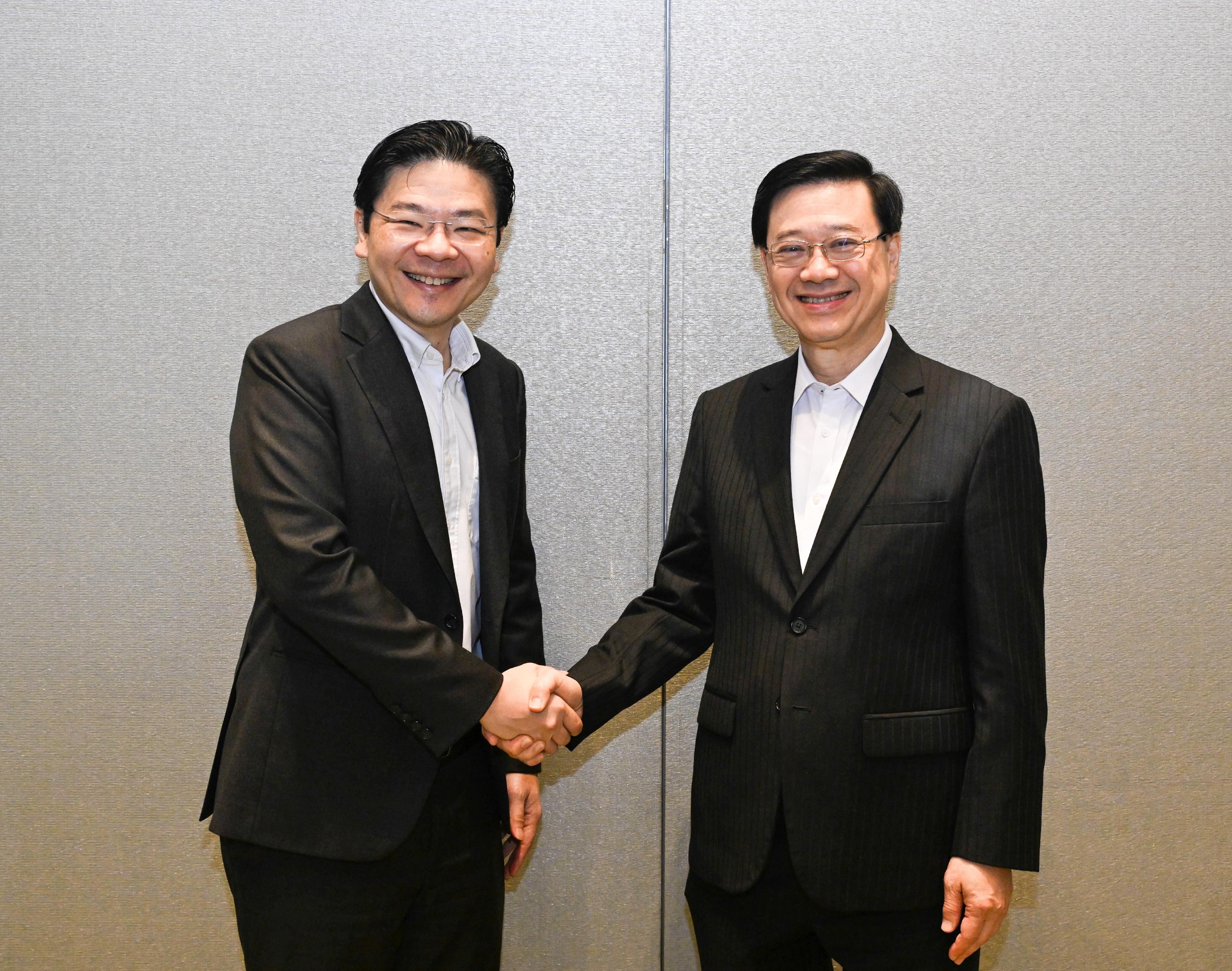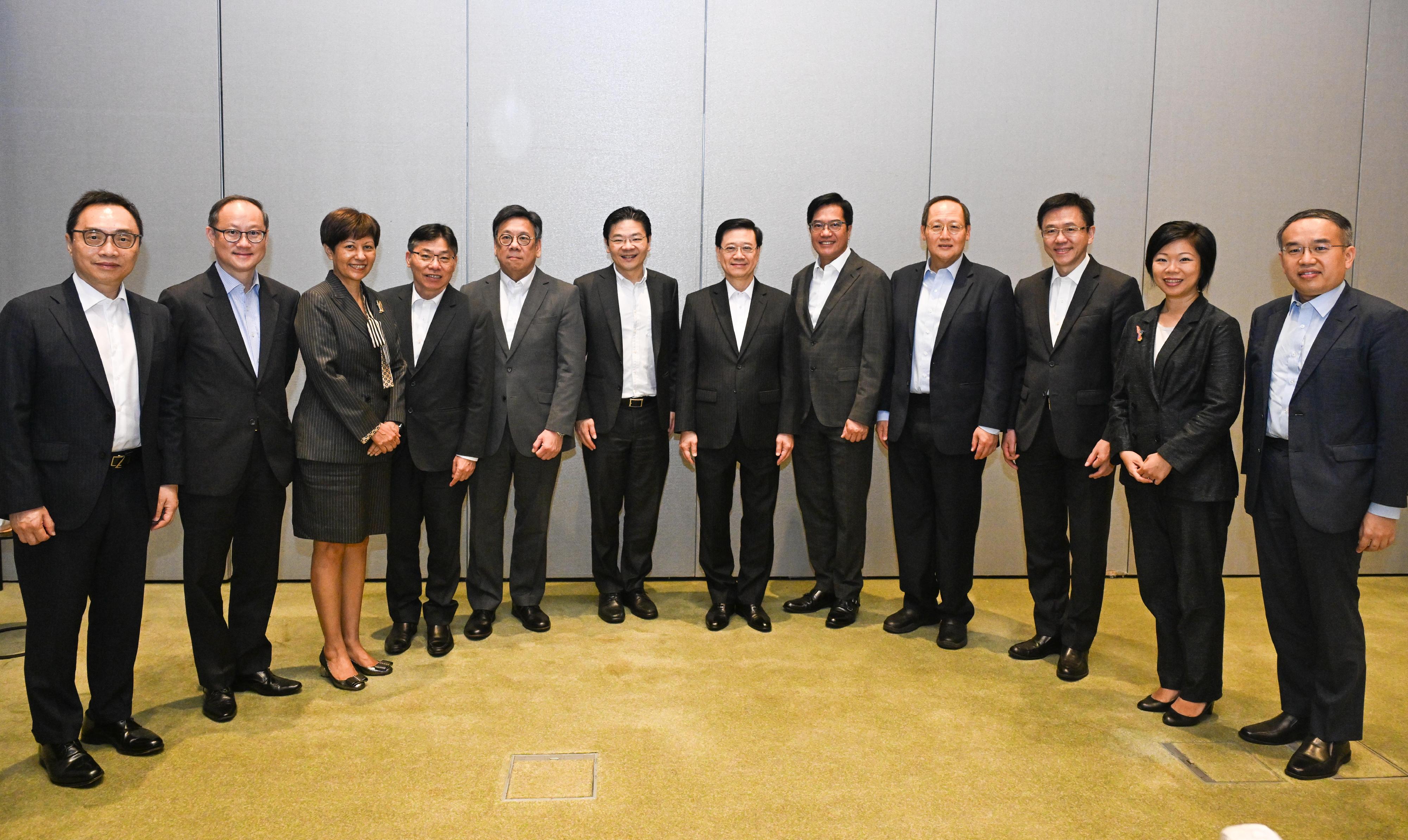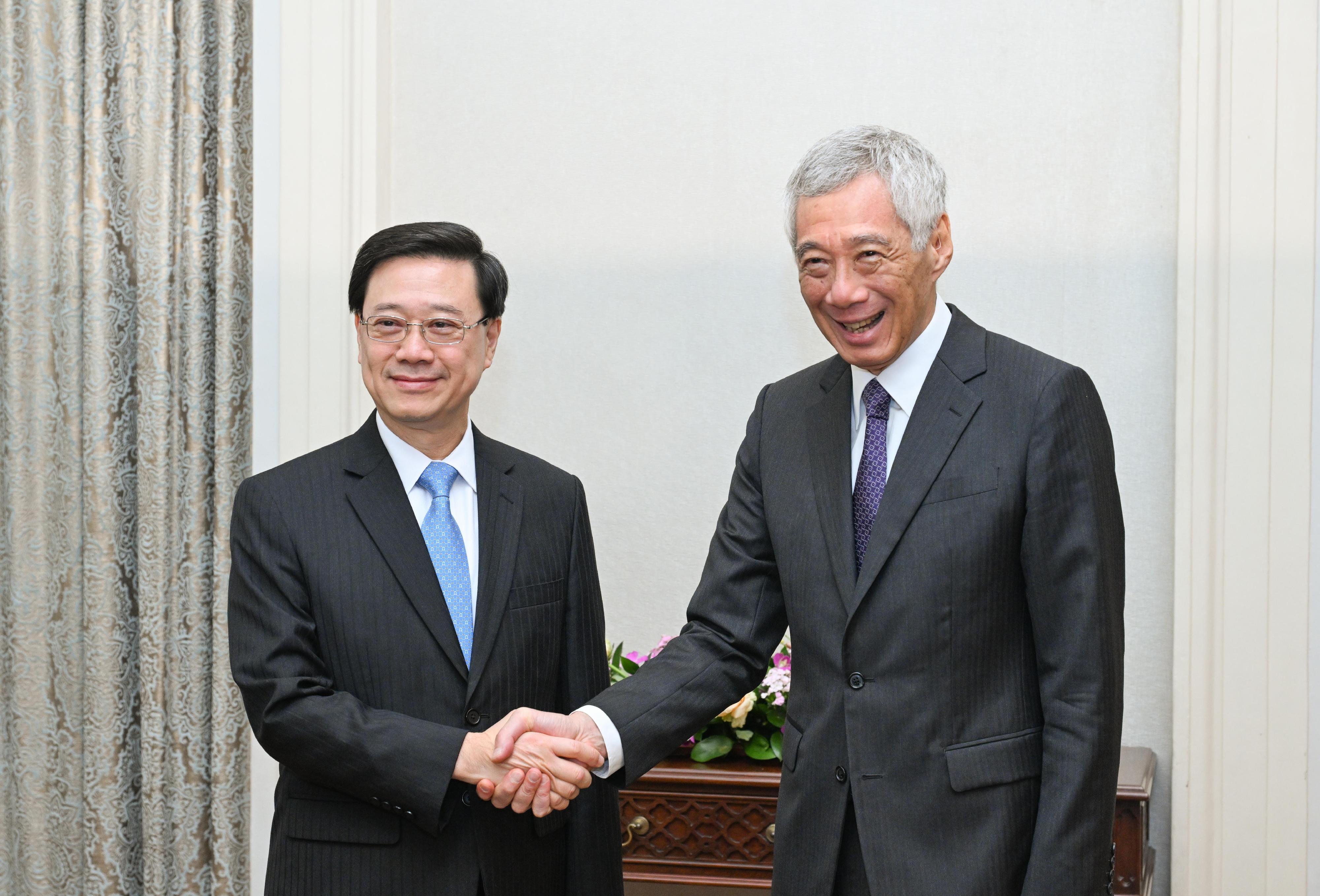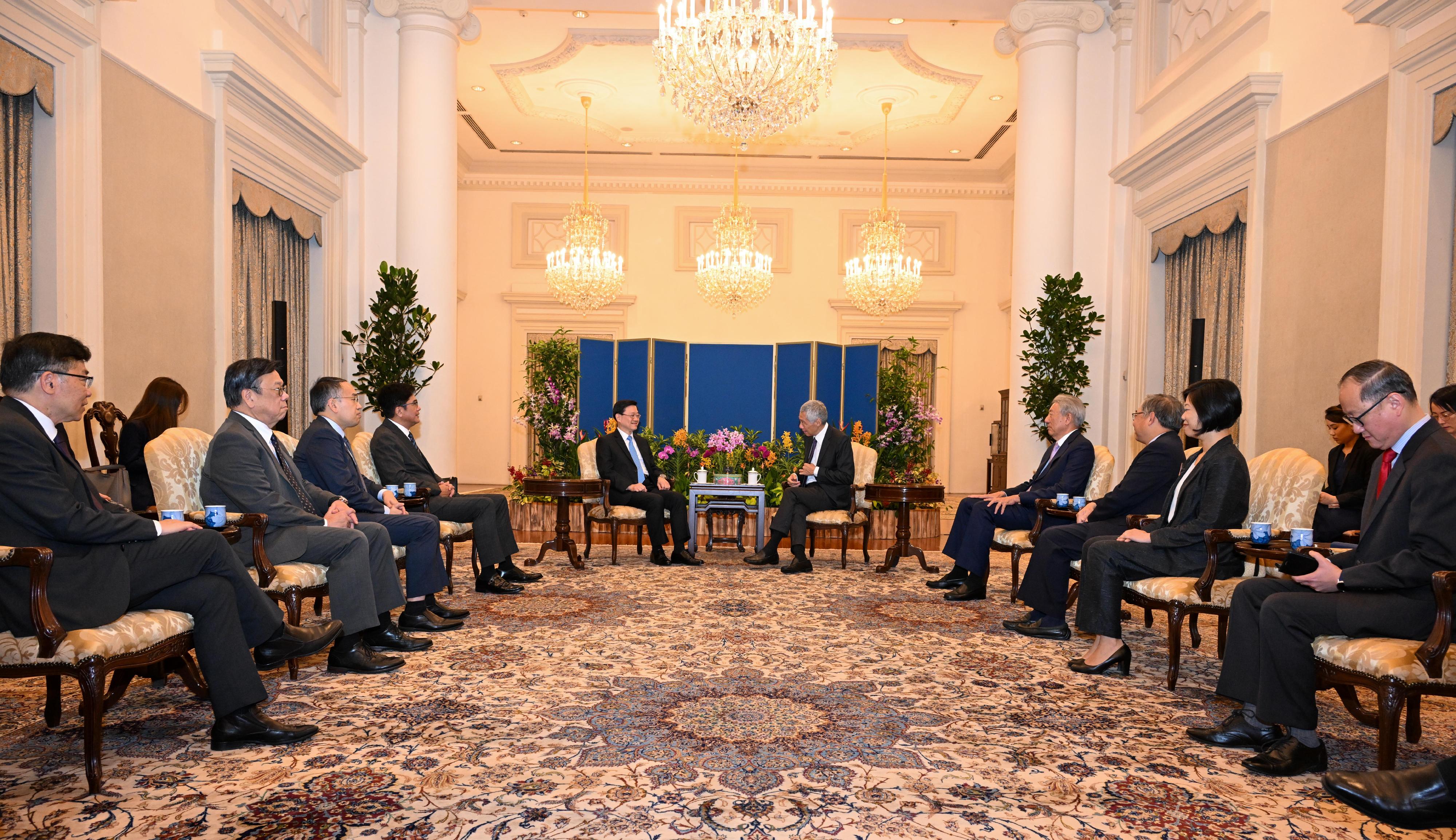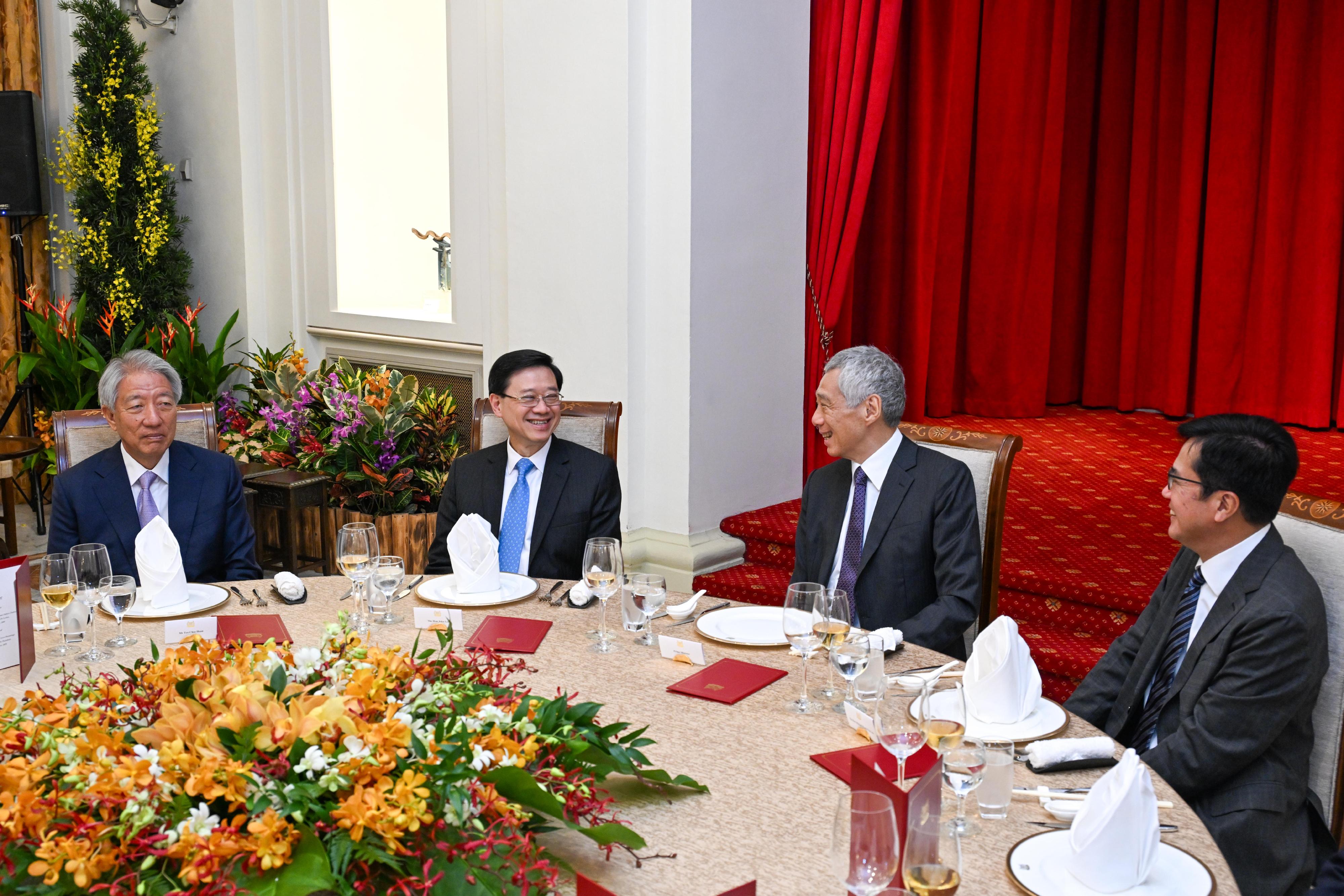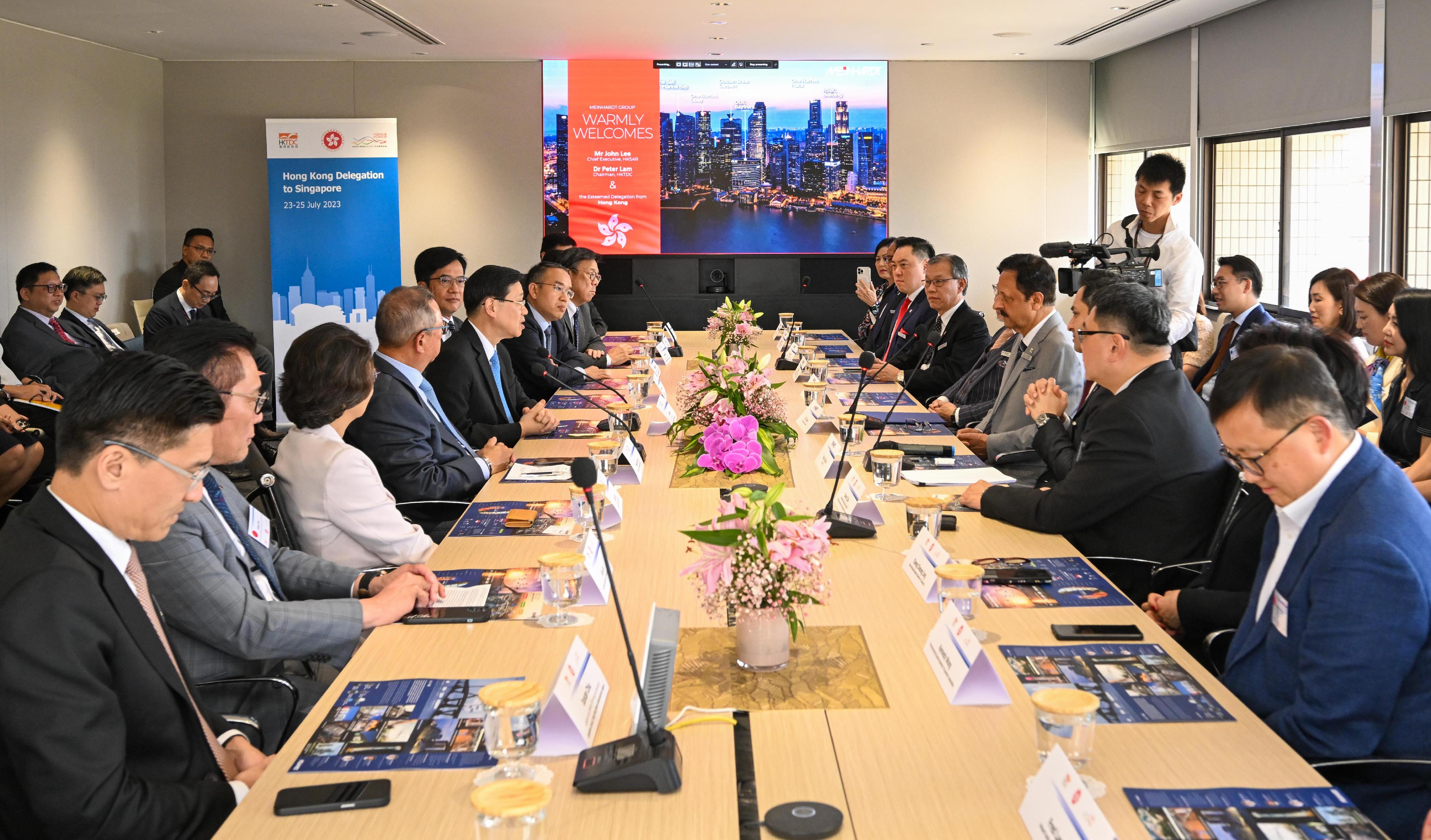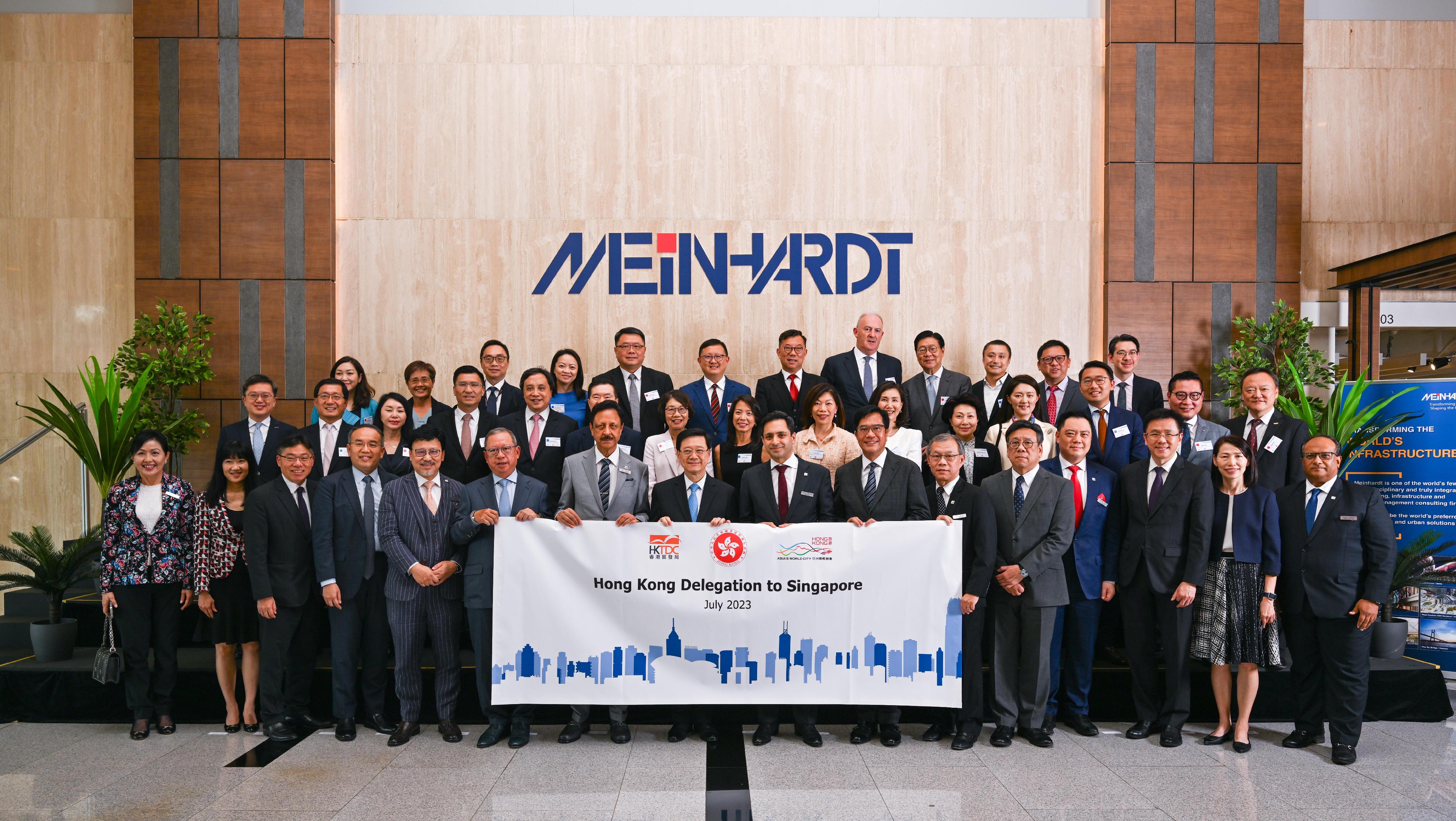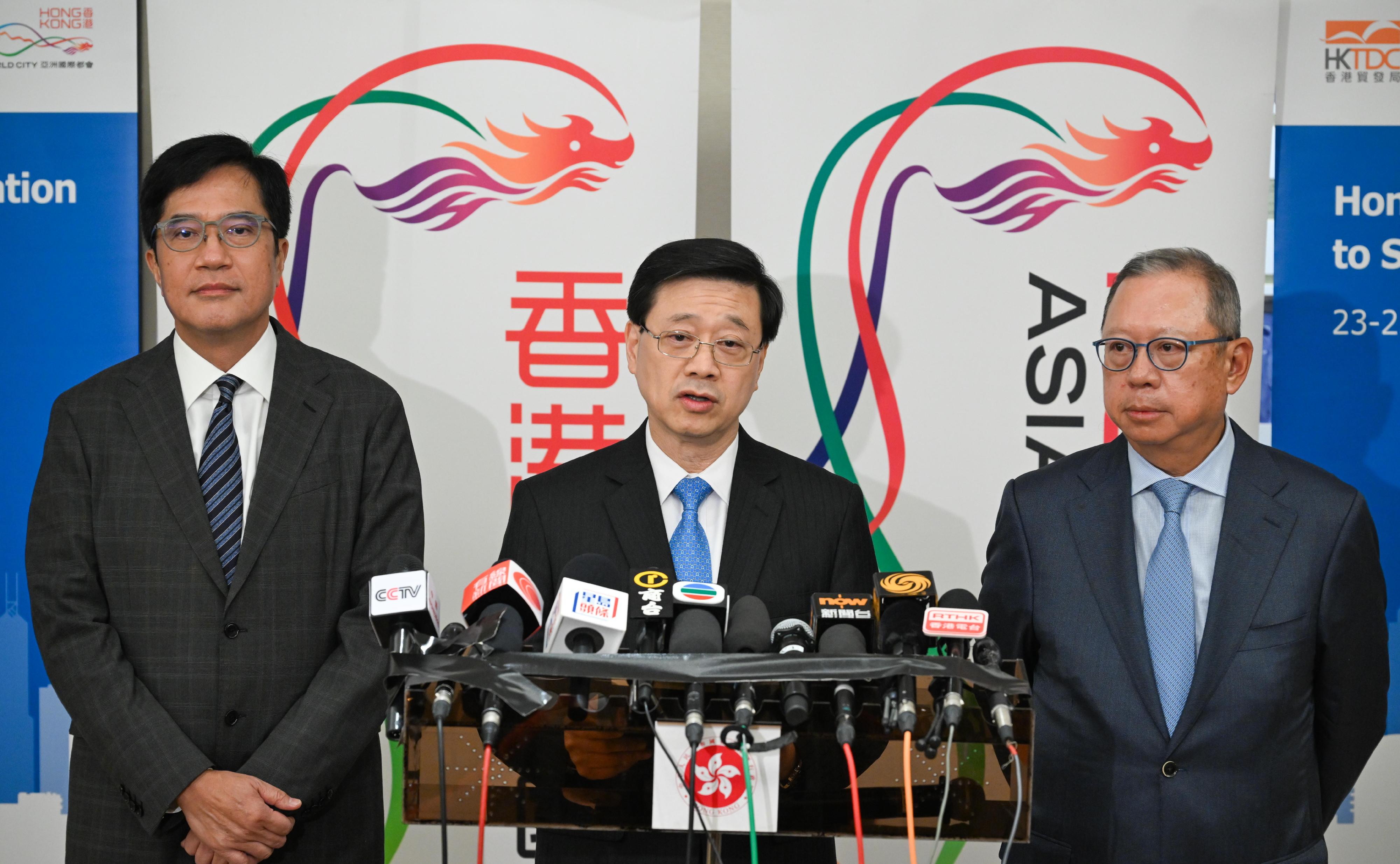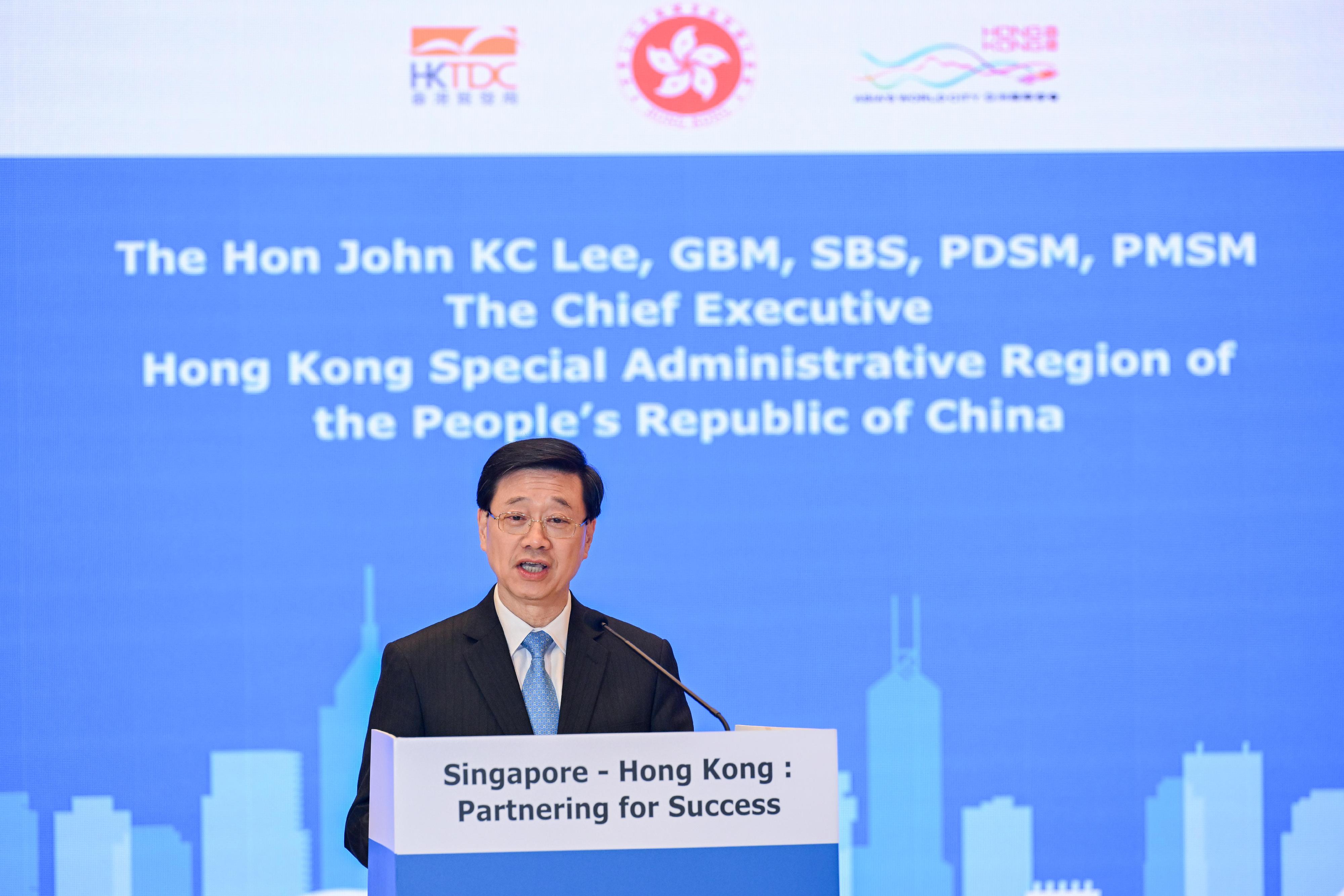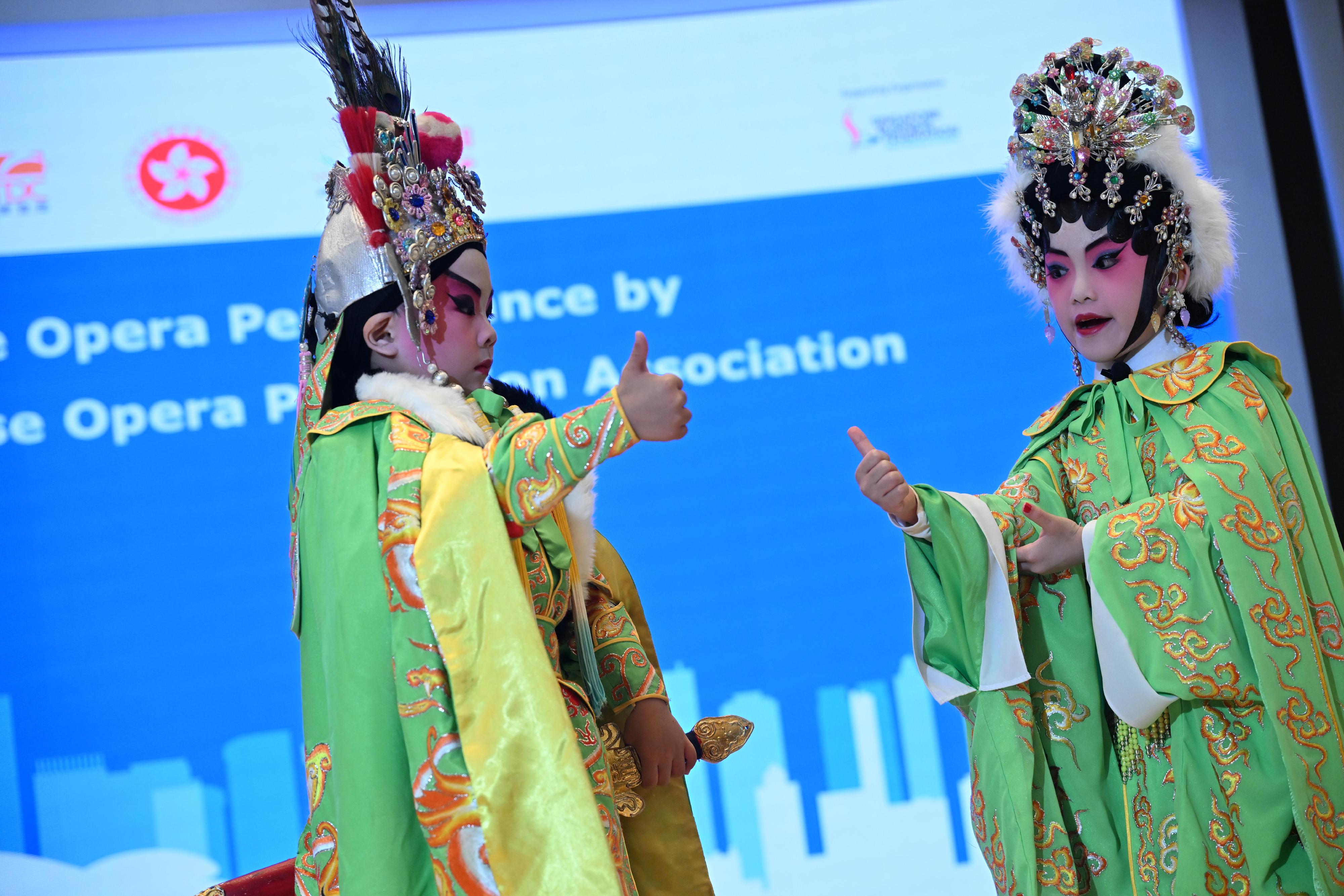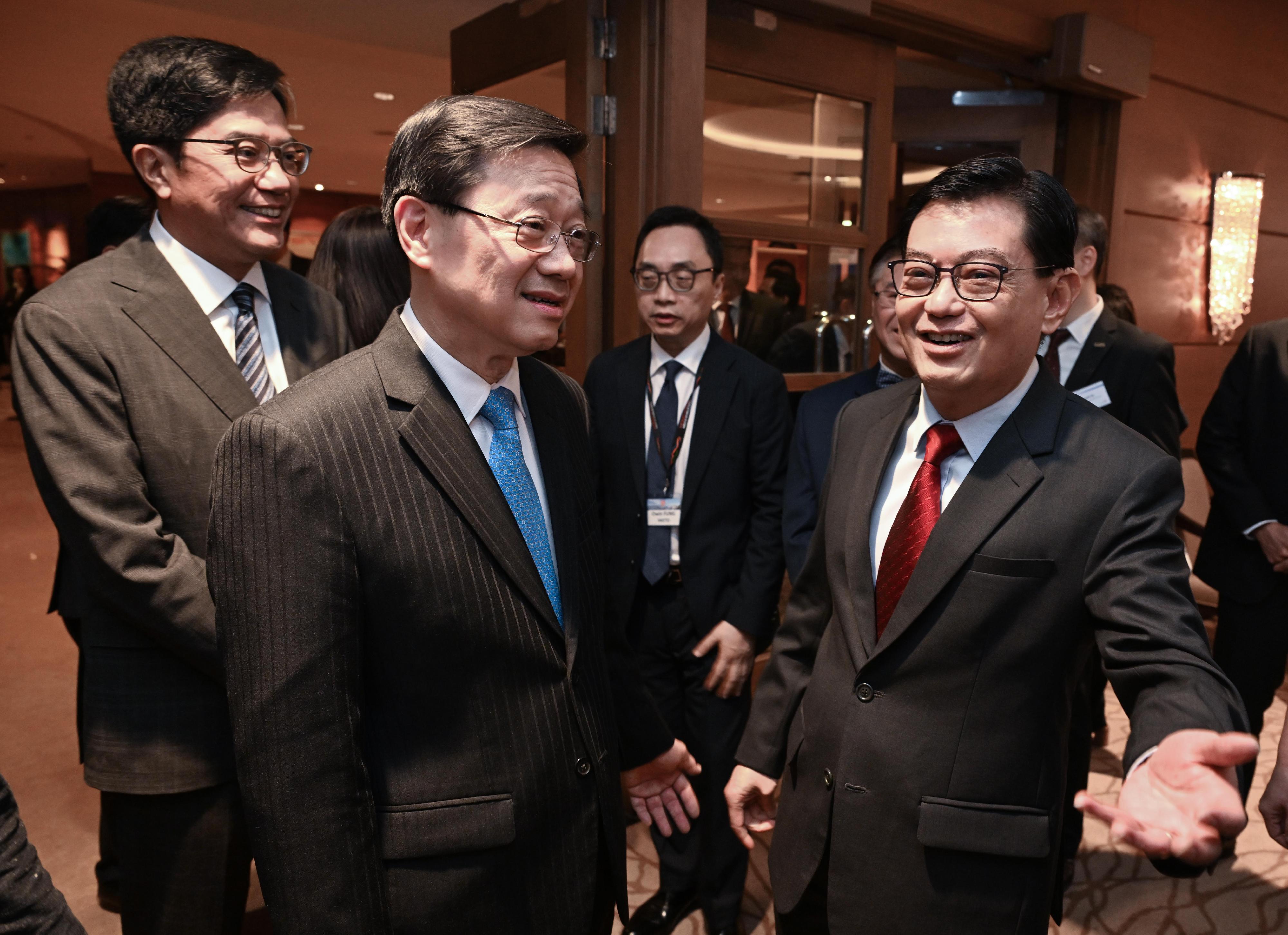CE’s delegation continues visit in Singapore (with photos/videos)
The Chief Executive, Mr John Lee, led a Hong Kong Special Administrative Region (HKSAR) delegation to continue its visit to Singapore today (July 24). He met with leaders of the Singapore government, visited a local enterprise, attended a business dinner and had exchanges with local business leaders.
In the morning, Mr Lee attended a breakfast meeting hosted by the Deputy Prime Minister and Minister for Finance of Singapore, Mr Lawrence Wong. He then met with the Prime Minister of Singapore, Mr Lee Hsien Loong, and attended a lunch hosted by the Prime Minister.
Noting the close relationship between Hong Kong and Singapore, Mr John Lee said that Singapore has consistently been Hong Kong's largest trading partner in the Association of Southeast Asian Nations (ASEAN), and ranked first among ASEAN countries as the largest place of origin in terms of the number of companies present in Hong Kong. He said that competition and collaboration come hand in hand in today's closely connected global economy, and that he believed Hong Kong and Singapore will continue to be active partners in advancing both places and play a useful role in regional developments.
Mr John Lee also stated that Hong Kong's bid to join the Regional Comprehensive Economic Partnership (RCEP) is an important step in strengthening its relationship with ASEAN. He expressed his gratitude to Singapore for supporting Hong Kong's accession to the RCEP, and the HKSAR Government stands ready to engage in exploratory discussions with RCEP members, including Singapore, with a view to deepening mutual understanding and laying the groundwork for the ensuing formal negotiations.
In the afternoon, the delegation led by Mr Lee visited a major Singaporean enterprise, Meinhardt Group, to learn about its business development in engineering consulting services. Mr Lee said that its successful experience of using Hong Kong as a springboard to tap into the Mainland market could inspire other Singaporean and ASEAN enterprises to follow suit. He also encouraged the Group to participate in the major development projects that Hong Kong is currently promoting, including the development of the Northern Metropolis.
In the evening, Mr Lee attended a business dinner jointly organised by the HKSAR Government and the Hong Kong Trade Development Council. Addressing about 200 representatives of the government and business leaders of Singapore, Mr Lee introduced the unique advantages of Hong Kong under "one country, two systems" and the latest investment opportunities in his keynote speech.
During the dinner, enterprises and institutions of Hong Kong and Singapore also signed seven memoranda of understanding on areas including trade, financial services, fintech, innovation and technology, and research collaboration.
Mr Lee will depart for Jakarta, Indonesia, tomorrow (July 25) morning to continue his visit programme.
